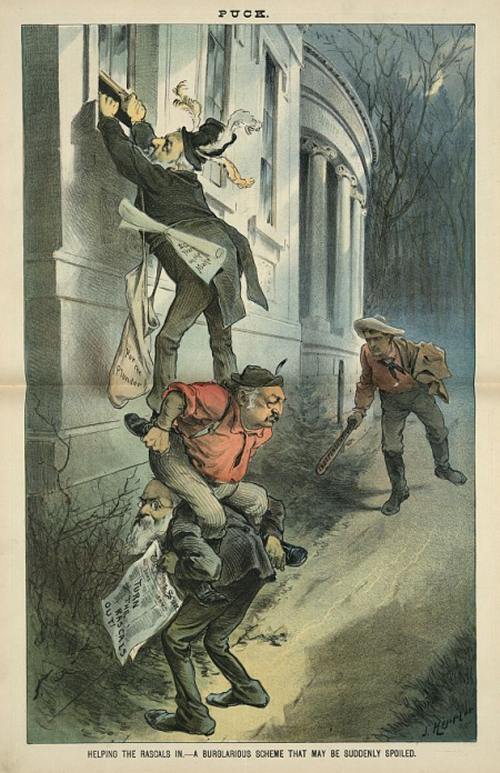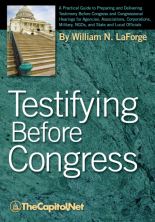From the Congressional Glossary – Including Legislative and Budget Terms
Constituent / Case Work

Constituent: A person who can or does elect a public official to office. A person eligible to vote for a candidate for a particular public office. A House member’s local offices (district offices) are located in the represented congressional district, and much of the district office staff work relates to constituent casework.
Congressional recesses are excellent times for constituents to participate in town hall meetings with their members back in the state (Senators) or district (Representative). To help constituents determine who represents them in Congress, search by zip code and access zoomable congressional district maps at govtrack.us, or call the U.S. Capitol Switchboard at 202-225-3121 and ask for contact information for their House member or two senators by providing their state and zip code. The average House office contains nine staffers and they spend 50 percent of staff time answering constituent mail.
Constituent Services
Many constituents are disappointed when they are not able to meet directly with their House member or senators, especially once they notice the age of the young congressional staffer that is attending the meeting on behalf of the member. However, it is important not to ever dismiss or underestimate the role of congressional staff. While they may be young and relatively inexperienced, staff members have more responsibility within the office and more influence with the member of Congress than you may realize. They are frequently the gatekeepers to meeting with a member of Congress and can be the key to getting your message considered or even used by the member. In some cases, having an in-depth discussion with the senior staffer responsible for your issue who will actually write the members’ talking points is more important in the long run than having a brief courtesy meeting directly with a member who may not remember the exchange.
Constituent contacts are the most effective type of congressional communication. They are more effective because all members of Congress are motivated by the same thing: getting re-elected.
A candidate’s future constituents, or an incumbent’s current constituents, are the most important political component of any campaign, because they are the voters. An incumbent must have conducted his tenure with them foremost in her considerations, and a candidate must try to convince them that she better understands and will better represent their political desires and aspirations.
A member must be vigilant in service to constituents and case work, aka “constituency service”, and must set standards for congressional office staff in ensuring quick and responsive attention to mail, phone calls, visits, and other contacts. Case work refers to helping individuals or small groups of constituents, including local governments, in their dealings with federal government agencies. How well a member conducts case work can be key to reelection. A congressional office may perform advocacy or referral functions for as many as several thousand cases a year, ranging from tracking down missing Social Security checks to expediting a passport application to clearing up immigration cases to facilitating consideration of a community’s grant application for some public project.
Cap South: Crazy Constituent Calls 1
A very important duty of members is to nominate appointees to the U.S. service academies. In states and districts where there are many applicants for these appointments, members use interview boards and other mechanisms to make choices. Favors for constituents include arranging tours for visitors to Washington, flying flags over the Capitol to commemorate special occasions, obtaining congratulatory messages from the White House, and making congratulatory speeches on the House or Senate floor. For more information, see “What’s the deal with …” and What Your Member of Congress Can Do for You.
However they have conducted themselves and whatever legislative record they have built, representatives every two years and senators every six years answer to the specific group that decides their fate: their constituents. See “7 stages of the office seeker“.
Also see: How to Contact Congress; Mid-Term Election; Terms and Sessions of Congress; Ch. 2 Pressures on Congress: Campaigns and Elections, § 2.20 Constituency Pressure, in Congressional Deskbook; § 4.38 Congressional Office Staffing, § 4.41 Essential Role of Congressional Staff, Ch. 7 Develop, Never Devalue, Grassroots, § 8.27 Constituent Meetings Compared to Other Congressional Communications, in Lobbying and Advocacy; District / Congressional District / District Work Period / State Work Period (CongressionalGlossary.com).
Military Academy Nominations – Informational Video
More
- “The seven stages of the office seeker“
- “What’s the deal with …“
- What Your Member of Congress Can Do for You
- Congressional Directory
- “Constituent Services: Overview and Resources,” CRS In Focus IF10503 (5-page PDF
 )
) - “Grants Work in a Congressional Office,” CRS Report 97-220 (29-page PDF
 )
) - “Constituent Services: Overview and Resources,” CRS Report R44726 (12-page PDF
 )
) - “Grants Work in a Congressional Office,” CRS Report RL34035 (20-page PDF
 )
) - “Casework in a Congressional Office,” CRS Report 98-878 (43-page PDF
 )
) - “Casework in a Congressional Office: Frequently Asked Questions,” CRS Report R44696 (12-page PDF
 )
) - “Casework in a Congressional Office,” CRS Report RL33209 (21-page PDF
 )
) - “Congressional Nominations to U.S. Service Academies: An Overview and Resources for Outreach and Management,” CRS Report RL33213 (26-page PDF
 )
) - “Internships in Congressional Offices: Frequently Asked Questions,” CRS Report R44491 (18-page PDF
 )
)
Courses
- Congressional Operations Briefing – Capitol Hill Workshop
- Drafting Federal Legislation and Amendments
- Writing for Government and Business: Critical Thinking and Writing
- Custom Training
- Preparing and Delivering Congressional Testimony and Oral Presentations, a Five-Course series on CD
- Congress, the Legislative Process, and the Fundamentals of Lawmaking Series, a Nine-Course series on CD
Publications

Testifying Before Congress |

Pocket Constitution |

Citizen’s Handbook to Influencing Elected Officials: A Guide for Citizen Lobbyists and Grassroots Advocates |

Congressional Procedure |
CongressionalGlossary.com, from TheCapitol.Net
For more than 40 years, TheCapitol.Net and its predecessor, Congressional Quarterly Executive Conferences, have been teaching professionals from government, military, business, and NGOs about the dynamics and operations of the legislative and executive branches and how to work with them.
Our custom on-site and online training, publications, and audio courses include congressional operations, legislative and budget process, communication and advocacy, media and public relations, testifying before Congress, research skills, legislative drafting, critical thinking and writing, and more.
TheCapitol.Net is on the GSA Schedule, MAS, for custom on-site and online training. GSA Contract GS02F0192X
TheCapitol.Net is now owned by the Sunwater Institute.
Teaching how Washington and Congress work ™

